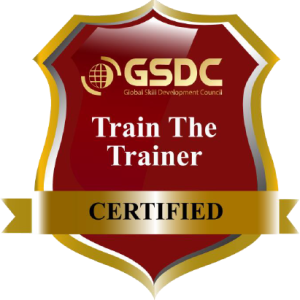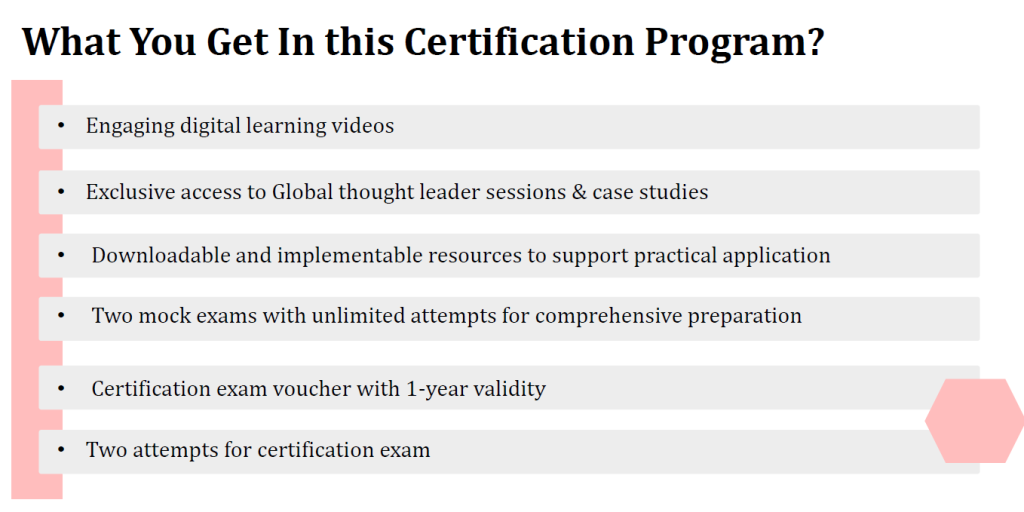Description
Global Certification Program
- E-Learning
- Globally lifetime Valid Certification
- Lifetime Valid Certification
- AI based Roleplay & Simulations
- Two Exam Attempts
Certified Train The Trainer
The GSDC Train The Trainer Certification (TTTC) is designed for professionals seeking to enhance their training skills and become a certified train the trainer. This certification equips individuals with the knowledge and resources necessary to effectively train others in any field, making it highly relevant in today’s world where continuous learning and skill development are crucial for success. Upon earning the train the trainer certificate, you’ll gain access to ready-to-implement hands-on resources, templates, and other tools that can accelerate your learning and application of training techniques. Whether you’re pursuing a TTT certification to expand your professional expertise or looking to refine your training approach, this TTT certificate will empower you with the tools and confidence to train others effectively. The train-the-trainer certification is the key to mastering modern training methodologies and delivering impactful learning experiences.
Learning Objective
❑ Acquire expertise in effective training approaches and strategies.
❑ Apply knowledge from practical use case examples.
❑ Utilize expert-developed templates for immediate implementation.
❑ Grasp adult learning principles for varied learner groups.
❑ Create engaging presentations and comprehensive training materials.
❑ Optimize training delivery with established frameworks.
❑ Learn to evaluate and monitor learner progress.
❑ Boost engagement with hands-on, interactive training methods.
❑ Gain confidence in leading impactful training sessions.
❑ Master the design and execution of training programs.
Curriculum
Module 1: Introduction to Training
• Role and responsibilities of a trainer
• Qualities of an effective trainer
• Difference between teaching, training, and coaching
Module 2: Adult Learning Principles
• Theories of adult learning (e.g., Andragogy, Kolb’s Learning Theory)
• Understanding learning styles (visual, auditory, kinesthetic)
• Motivation and engagement techniques
Module 3: Designing Effective Training
• Conducting a Training Needs Analysis (TNA)
• Setting SMART learning objectives
• Creating lesson plans and training materials
Module 4: Training Delivery Techniques
• Effective communication skills
• Presentation techniques (body language, voice modulation)
• Engaging participants and managing group dynamics
Module 5: Utilizing Training Aids & Technology
• Creating and using visual aids (PowerPoint, flip charts, etc.)
• Incorporating multimedia and digital tools
• Virtual and blended training delivery tools
Module 6: Managing Questions and Feedback
• Handling questions effectively
• Giving and receiving constructive feedback
• Building a feedback-friendly environment
Module 7: Evaluating Training Effectiveness
• Using evaluation methods (surveys, tests, feedback forms)
• Kirkpatrick’s Evaluation Model (Reaction, Learning, Behavior, Results)
• Using feedback for improvement
Module 8: Personal Training Style Development
• Identifying your training style
• Building rapport with learners
• Ongoing self-reflection and improvement







